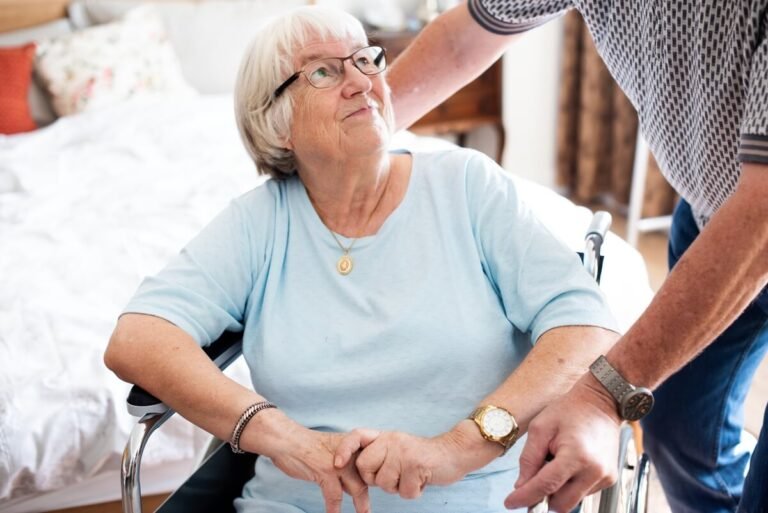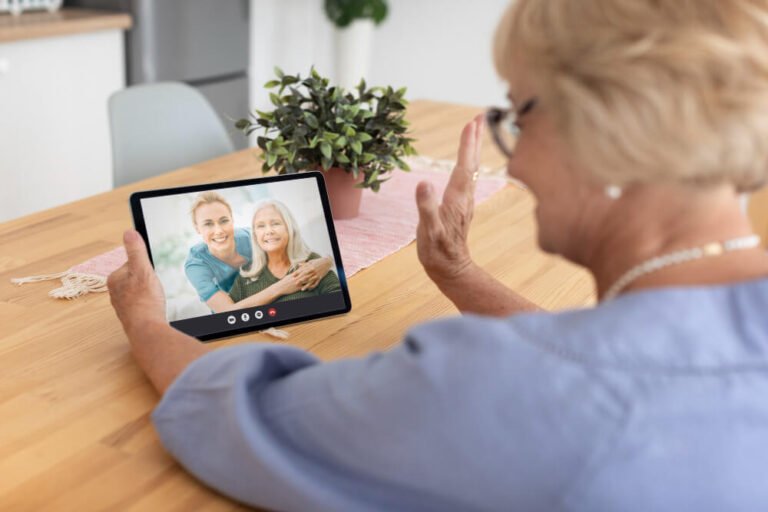How to Manage Nutrition as a Family Caregiver
How can family caregivers learn about nutrition?

You can learn about nutrition as a caregiver by consulting with medical professionals like registered dietitians. They can offer personalized dietary guidance and recommendations. Also, consider online resources like MyPlate.gov for general dietary guidelines and information on food groups.
Why Nutrition Education Is Important
One area that often brings family caregivers stress is nutrition. Making sure the person you’re caring for is eating well can be a challenge. Good nutrition supports better health and can help prevent common problems in aging like fatigue, illness or mood swings.
If you’re a family caregiver, understanding nutrition can ease your load and improve your loved one’s quality of life. You don’t have to be a dietitian to make a difference. A few small changes can go a long way.
What You Should Know About Nutritional Needs in Older Adults

As we age, our bodies change. These changes can affect how we eat and how our bodies use food. Knowing what’s normal and what to watch out for can help you plan better meals and reduce caregiving anxiety.
Common Nutritional Challenges with Aging
You may notice that your loved one:
- Feels full faster or eats less than before.
- Says food doesn’t taste the same.
- Has trouble chewing or swallowing.
- Is on medications that upset their stomach.
- Has less energy to cook or shop.
These are common, but they can lead to serious issues like weight loss, weakness or confusion.
Key Nutrients for Aging Well
Some nutrients become even more important with age:
- Protein helps maintain muscle and strength.
- Fiber keeps digestion regular.
- Calcium and Vitamin D strengthen bones.
- Vitamin B12 supports brain and nerve health.
Here’s a nutrition goal to consider. Aim for meals that include lean meats, beans, whole grains, dairy or fortified alternatives, fruits, and vegetables. A doctor or registered dietitian can help you tailor these needs.
If you need help finding a dietary professional, start with your health insurance plan. Many health insurance plans offer coverage for consultations with registered dietitians or licensed nutritionists.
Building a Practical and Healthy Meal Plan
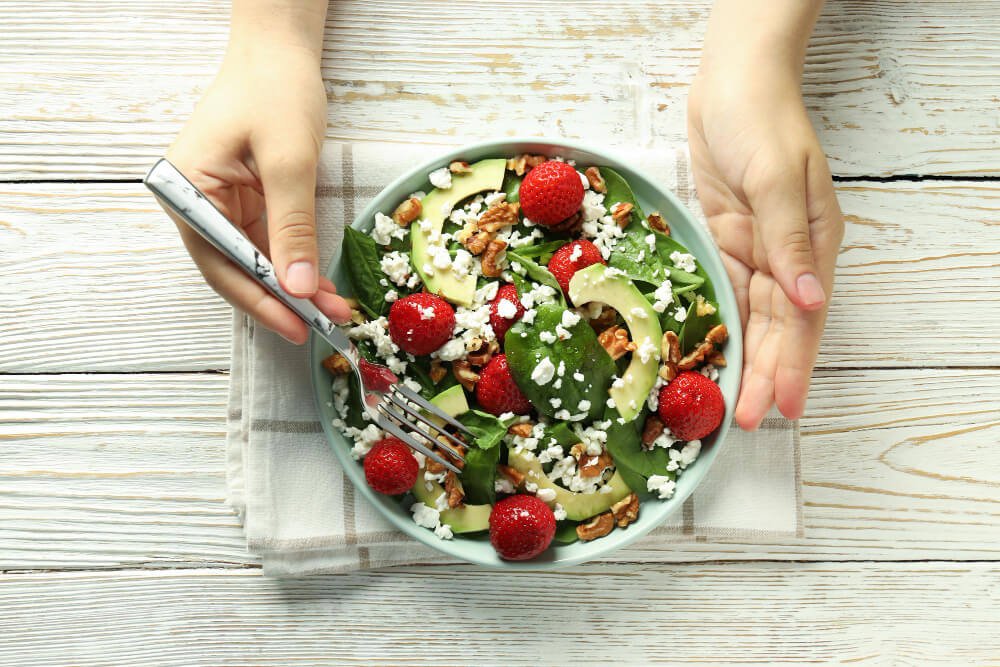
The right planning can save time, reduce food waste and help your loved one feel better. Start with their specific health needs.
Personalize the diet based on health conditions.
If your loved one has a chronic condition like diabetes, heart disease or dementia:
- Choose low-sugar, high-fiber foods for blood sugar control.
- Limit salt and saturated fats for heart health.
- Offer small, nutrient-rich meals that promote memory and mood support.
Also, some medications may interact with certain foods. Ask their doctor or pharmacist what to avoid.
Plan meals around your busy caregiving schedule.
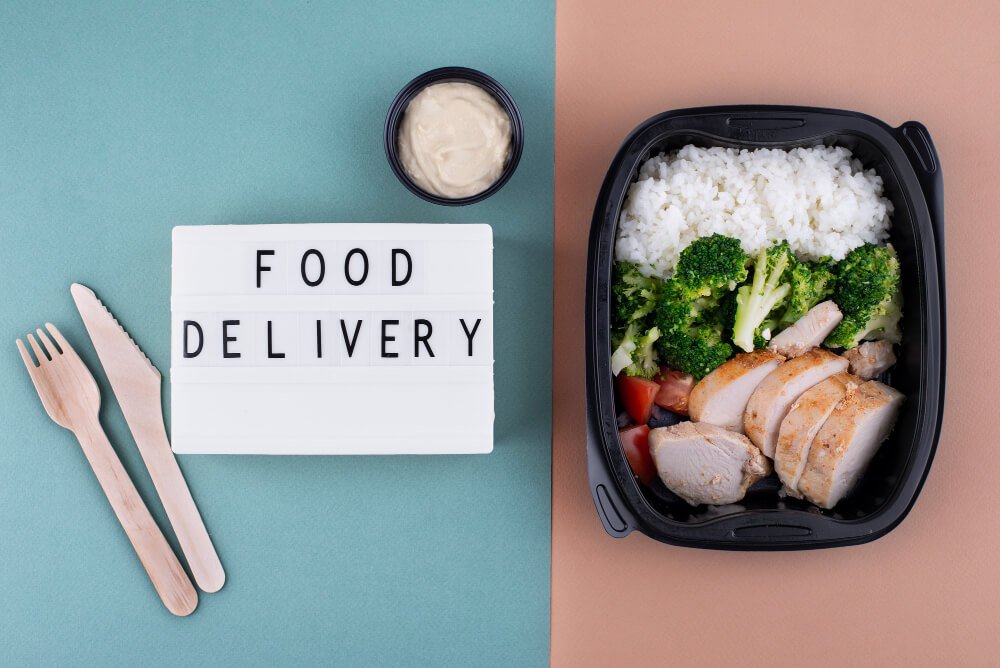
Meal prep doesn’t have to be fancy to be healthy:
- Cook meals in large batches and freeze leftovers.
- Use slow cookers or air fryers to save time.
- Try grocery delivery or meal kits made for seniors.
- Shop sales and use coupons to stay on budget.
- Make simple snacks like yogurt, boiled eggs or cut-up fruit easy to grab.
The goal is to make meals easier for both of you.
Explore more meal preparation solutions and other caregiver tools that can help reduce stress.
Supporting Consistent and Compassionate Mealtime Habits
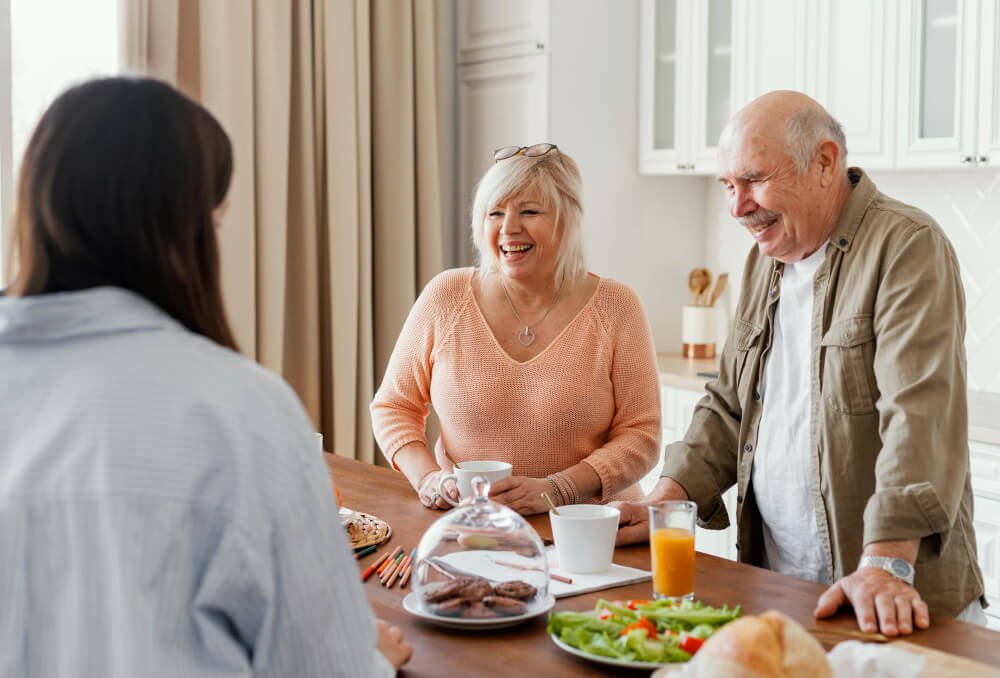
Nutrition is about more than what we eat. It’s also about how, when and where we eat. Creating a calm, positive environment helps your loved one enjoy food more. It can also help you feel less stressed.
Create a positive mealtime environment.
- Stick to regular meal times.
- Eat with your loved one when possible.
- Minimize TV or loud distractions.
- Offer foods they enjoy with some healthy swaps.
- Serve meals in smaller portions to avoid overwhelming them.
Even 20 quiet minutes at the table can build your connection with them and offer some peace of mind.
Encourage hydration and manage appetite loss.

Dehydration is common in older adults and easy to miss. Look out for dry mouth, dizziness or dark-colored urine. To help:
- Offer water, herbal teas or milk throughout the day.
- Add fruits with high water content like watermelon or oranges.
- Keep a water bottle nearby at all times.
- Try using fun straws or cups they like.
Does your loved one dislike drinking plain water? Consider some of the hydration and health benefits of drinking coconut water.
If your loved one eats less, serve small meals more often. Gentle encouragement can help, but avoid pressuring them to eat.
Caring for Yourself While Caring for Their Nutrition
Sometimes, even planning meals can feel like too much for a caregiver. Many caregivers struggle with time management, guilt and fatigue.
Try one or more of the following self-care tips.
- Ask family to take turns with meals.
- Accept help from friends or neighbors.
- Say yes to meal services or delivery apps.
- Rest when you can.
Taking care of your loved one’s health starts with supporting your own. A small break, a prayer or a shared laugh with a loved one can go a long way.
Simple First Steps to Improve Your Loved One’s Nutrition
Managing your loved one’s nutrition requires thoughtful planning and flexibility.
You don’t need to change everything at once. Choose just one new habit this week. You might add an extra cup of water to their daily intake or plan three simple dinners with balanced nutrition. These small wins can help you build momentum.
Starting slow also helps you avoid caregiver burnout while keeping routines realistic. Don’t forget that you’re making a positive impact every day. Keep it up.
Managing Nutrition FAQ
What are the best snacks for older adults?
Healthy snacks include yogurt, sliced fruits, nuts — if they can chew, as well as whole-grain crackers and cheese.
What should I do if my loved one refuses to eat?
Start with small portions, try to serve their favorite foods, and create a calm environment at mealtime. If the issue persists, talk to a doctor.
How much water should seniors drink daily?
Most older adults should aim for 6 to 8 cups per day, unless their doctor says otherwise.
What are some easy meals I can make ahead?
Soups, casseroles, oatmeal and pasta dishes freeze well and are easy to reheat.
Can I get help with meal planning?
Yes. Many local senior centers, places of worship and apps offer support. You can also consult with a dietitian or check resources in your area.





